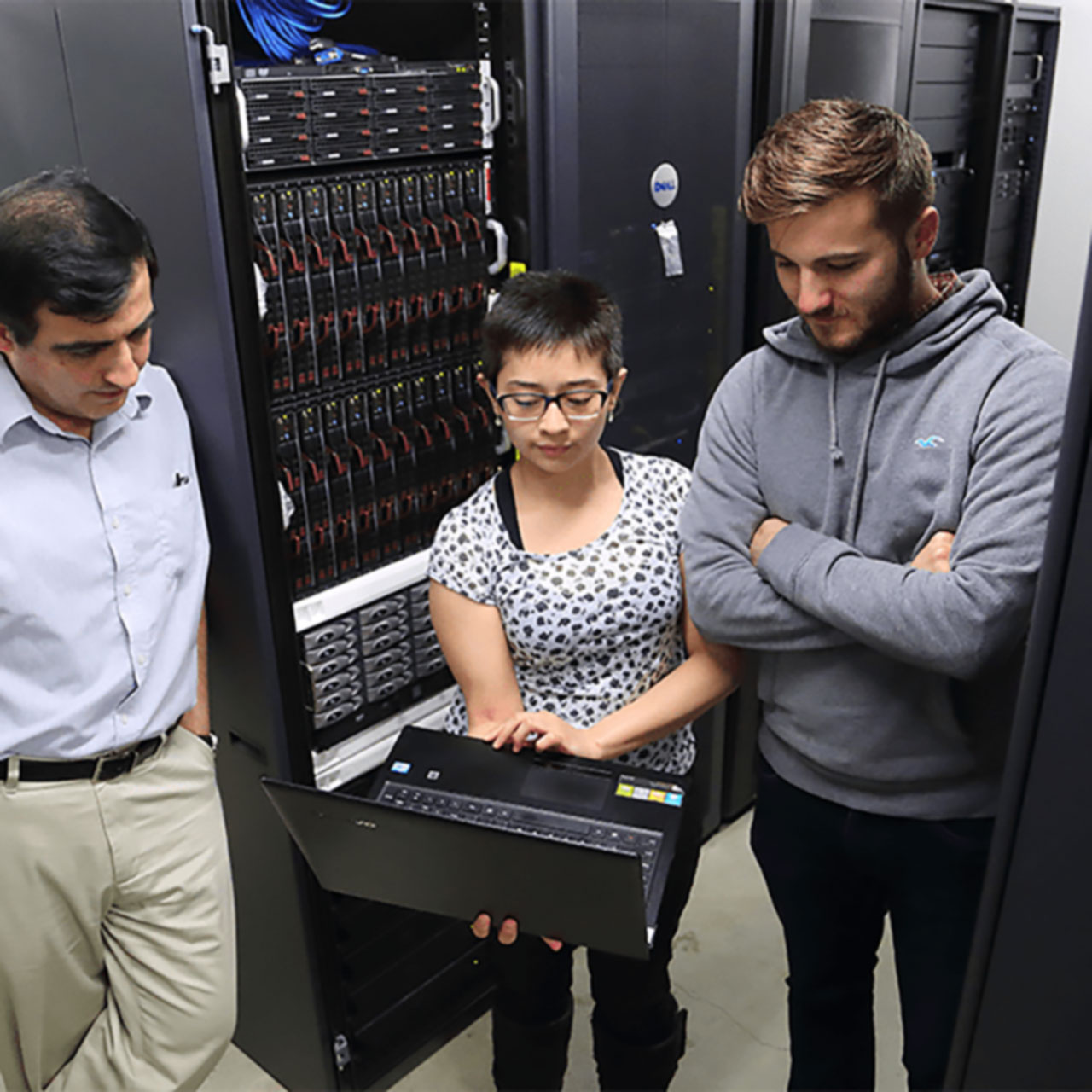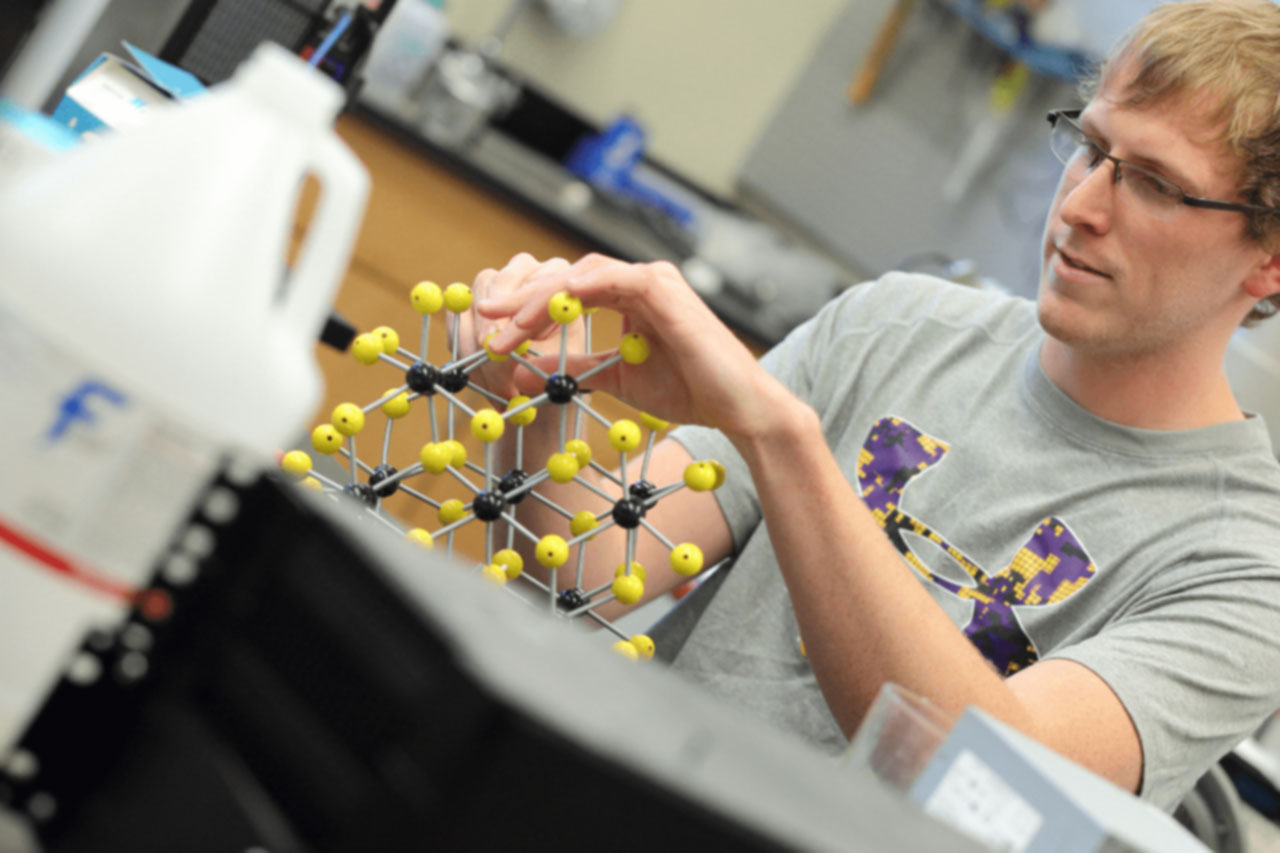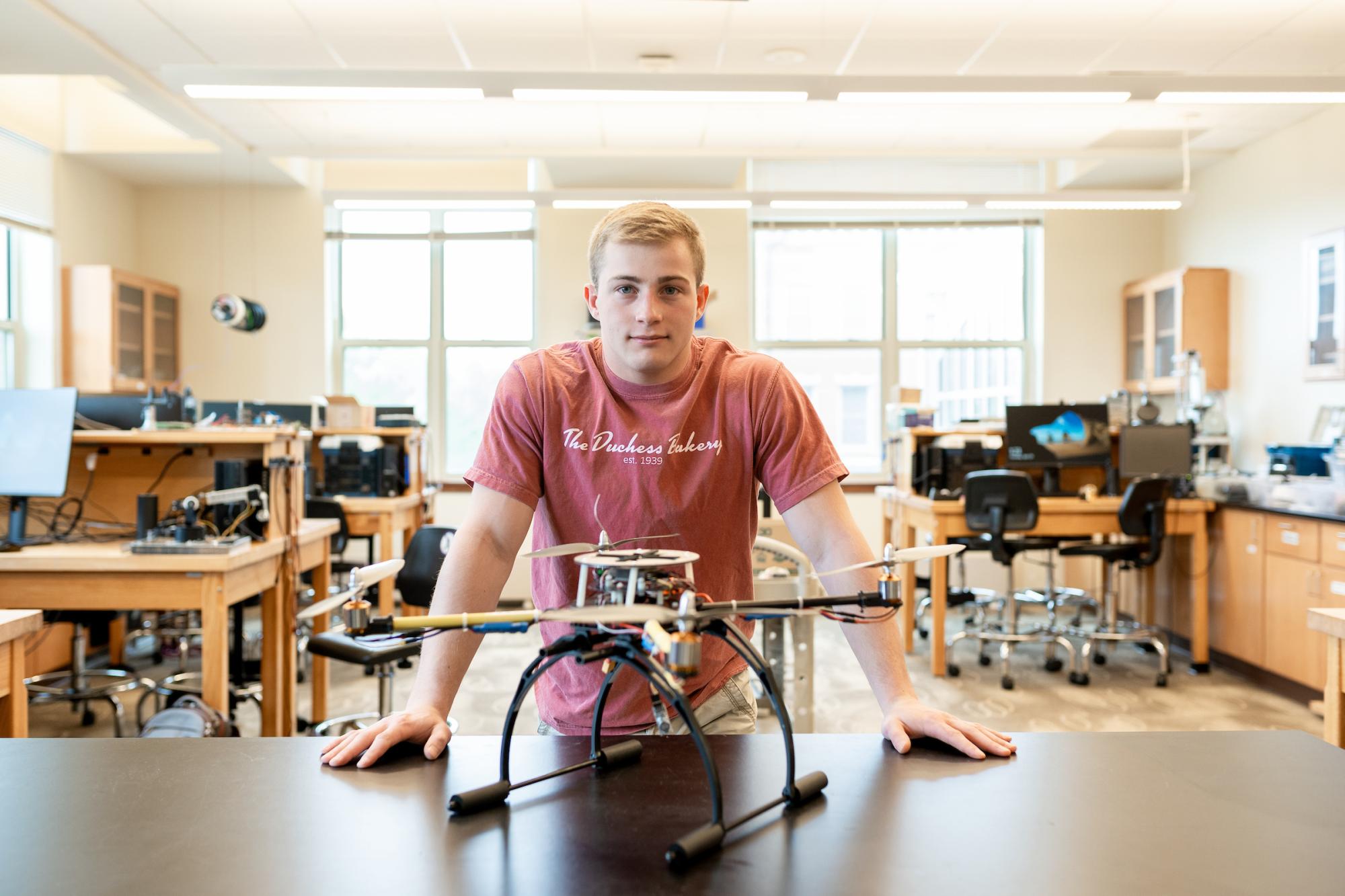Physics B.S. Major
Physics challenges our imagination, and shapes the way we see the world around us
Whether it’s experimenting with artificial intelligence, designing components to make electronics run faster, or building modelling systems to solve real-world problems, physicists are making life-changing discoveries every day.
If you want to be a part of this exciting and innovative field, you should consider majoring in physics.
The physics major at UNI offers flexible options to prepare you for graduate study in fields such as physics, astrophysics, medicine and engineering. Or, you may choose to go straight into professional practice as a teacher or physicist in industrial, governmental or institutional settings.


Top ranked
The Physics program at UNI ranks in the top 15% nationally for students graduating from a bachelor's only department.

Paid research
Our department offers paid summer research fellowships each year, providing a $4,000 stipend for up to 16 physics majors to conduct research.

$60,000
Average starting salary in the private sector for Physics bachelor's degree recipients nationwide. (American Institute of Physics Statistical Research Center.)
Find out More About Physics
Fill out your information here and we'll be in touch!
Contact us directly at:
UNI Department of Physics
University of Northern Iowa
215 Begeman Hall
Cedar Falls, Iowa 50614-0150
Phone: 319-273-2420
Email: physics@uni.edu
Which degree should I get?
Bachelor of Arts
Students pursuing a BA in physics can choose from two areas of emphasis: Data Science or Custom Emphasis. The BA degree program requires less coursework than the BS, making it an excellent complement to a second major in math, computer science, chemistry, biology or related fields.
Bachelor of Science
The BS degree is designed for students who wish to pursue a career in engineering or technology. Students may seek employment in these fields upon receiving their undergraduate degree or they may pursue graduate studies in physics or engineering. The BS degree program requires more coursework than the BA.
Opportunities for Students
Careers
UNI's Physics program will arm you with the skills needed to thrive in a variety of high-demand fields in both the public and private sectors. Common careers include:
- Systems Engineer
- Mechanical Engineer
- Product Engineer
- Quality/Test Engineer
- Software Developer
- Systems Analyst
- Research Technician

Courses
Our coursework focuses on hands-on labs – letting students learn by working with high-tech, industry-grade tools and equipment. Typical career track courses include:
- First-year Projects in Physics
- Introduction to Electronics
- Modern Physics
- Modern Physics Laboratory
- Computational Physics
- Data Visualization, Modeling and Simulation
- Robotics and Sensors
- Quantum Mechanics

Careers
UNI's Physics program will arm you with the skills needed to thrive in a variety of high-demand fields in both the public and private sectors. Common careers include:
- Systems Engineer
- Mechanical Engineer
- Product Engineer
- Quality/Test Engineer
- Software Developer
- Systems Analyst
- Research Technician

Courses
Our coursework focuses on hands-on labs – letting students learn by working with high-tech, industry-grade tools and equipment. Typical career track courses include:
- First-year Projects in Physics
- Introduction to Electronics
- Modern Physics
- Modern Physics Laboratory
- Computational Physics
- Data Visualization, Modeling and Simulation
- Robotics and Sensors
- Quantum Mechanics

Doing undergraduate research was an amazing experience. It allowed me to explore my strengths and see physics in a real-world setting, as opposed to just the classroom.
Preparing you for careers of the future
The workforce is changing. More than ever, employers are seeking workers with cross-training and a diverse set of skills. That’s why we’ve crafted our curriculum to meet the needs of the future workplaces.
Our graduates are equipped to do many things: code, build and troubleshoot electronics, analyze data, implement modeling systems, and more. This kind of cross-training builds resilient workers, who can quickly change focus when their job requires it.
In addition, our Physics Seminar class – required for everyone in our department – prepares students for life after graduation. Students participate in physics colloquia; prepare an oral report on a research topic or internship, draft their resume/CV, participate in interviews, and perform job and graduate school searches.

Hands-on Learning
Our department prides itself on the close interaction between faculty and students both inside and outside the classroom. Personalized attention, combined with research opportunities and independent laboratory projects, allows students to work with sophisticated equipment and to gain research experience at the undergraduate level.
Students have opportunities to work with faculty in such research areas as magnetic properties of materials, computational materials science, biological physics, statistical physics, optical spectroscopy, low-dimensional structures and surfaces, and physics education.
